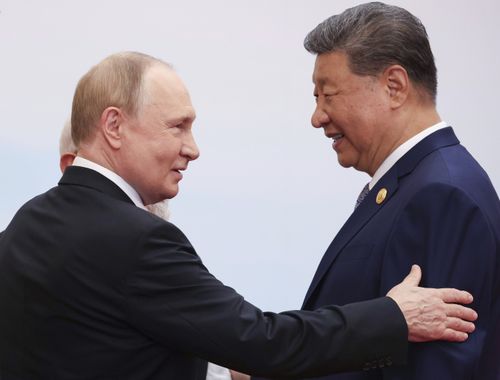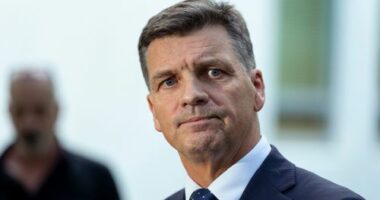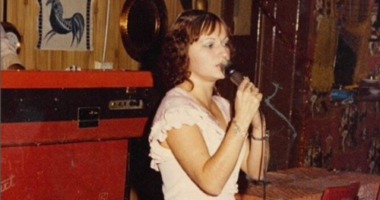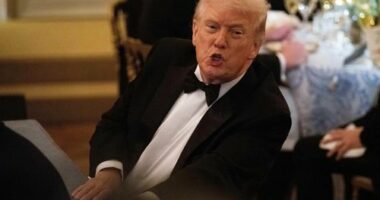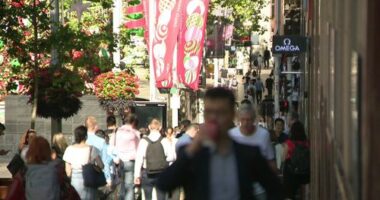Share this @internewscast.com
Chinese leader Xi Jinping has subtly criticized the United States by addressing “bullying practices” and presenting China as a potential leader in global governance, during a period when President Donald Trump’s America First policy is challenging the international landscape.
“The regulations of a few nations should not be imposed on others,” Xi stated to over 20 global leaders at a two-day summit designed to highlight China’s global leadership and its strong partnership with Russia. This alliance aims to shift global power in their favor, potentially at the expense of the US and its allies.
The summit of the Beijing- and Moscow-supported Shanghai Cooperation Organization (SCO), hosted in Tianjin, China’s northern port city, is China’s major diplomatic event of the year. Significant political figures attended, including Russian President Vladimir Putin, Indian Prime Minister Narendra Modi, and Turkish President Recep Tayyip Erdoğan.

During the summit, Xi announced a commitment of 2 billion yuan ($427 million) in grants to SCO member nations this year, and an additional 10 billion yuan ($2.1 billion) in loans to an SCO banking group within the next three years.
“We should utilize the advantages of our large-scale markets and economic synergy among member states to enhance trade and investment facilitation,” Xi proclaimed in his opening address on Monday.
Later, Xi introduced a new Global Governance Initiative, following his three prior initiatives focused on security, development, and civilization, collectively outlining his vision for a transformed international order.
“I look forward to working with all countries for a more just and equitable global governance system,” Xi said, pledging to increase the representation and voice of developing countries and practice multilateralism â echoing longstanding calls from the Global South.
“We should continue to dismantle walls, not erect them; seek integration, not decoupling,” he added.

Xi’s vision pushes back against what Beijing sees as the foundations of a US-led world order, opposing alliances like NATO â which in his view exist to enforce the West’s rules-based system â and calling into question the concept of universal human rights, while seeking to reshape power at the United Nations and other bodies it sees as unfairly dominated by the West.
Without naming the US directly, Xi vowed to oppose “hegemonism,” “Cold War mentality” and “bullying practices” â phrases often deployed by Beijing to criticise Washington.
As Trump alarms nations with his global trade war, withdrawals from international organisations, slashing of foreign aid and threats on social media, Beijing views the US as undermining the international order it worked to build â and sees an opportunity to ramp its own vision as an alternative.
“We should advocate an equal and orderly multipolar of the world, and a universally beneficial and inclusive economic globalisation and make the global governance system more just and equitable,” Xi said in his opening remarks.
Echoing Xi’s remarks, Putin said the SCO laid the groundwork for a “new system” of security in Eurasia, positioning it as an alternative to Western-led alliances that he has long railed against.

The summit is a showcase for closer ties between China and Russia, as well as the friendship struck up over the years by their two autocratic leaders.
The deep personal rapport between the two men was on show Sunday evening, when Xi and his wife Peng Liyuan hosted a welcome banquet for attending leaders.
Footage released by Russian state news agency RIA showed Xi and Putin gesturing animatedly and smiling as they chatted at the event, showing a different side of the typically restrained Chinese leader â and his warm and relaxed demeanour with his Russian counterpart.
The SCO summit is also the leaders’ first opportunity to meet since Putin’s summit with Trump in Alaska in August â and comes as Putin resists Western pressure to end his onslaught in Ukraine.
Just last week, Moscow’s forces carried out their second largest aerial attack to date on Ukraine.

On Monday, Putin used his speech at the SCO summit to reiterate his talking points on the war in Ukraine, saying the crisis “did not arise as a result of Russia’s aggression against Ukraine, but rather as a consequence of a coup d’état in Ukraine, which was supported and provoked by the West.”
Moscow launched a full scale invasion of Ukraine in February 2022, after Russia’s troops previously seized the Crimea and swathes of eastern Ukraine.
The Russian leader praised efforts by China and India at facilitating the resolution of the crisis, and described the “understanding” reached with Trump at the Alaska meeting as “opening the way to peace in Ukraine.”
“During the bilateral meetings scheduled for today and tomorrow, I will, of course, inform my colleagues in more detail and thoroughly about the results of the negotiations in Alaska,” Putin said, adding that he had already informed Xi “in detail” during a lunch on Sunday.
Kremlin aide Yury Ushakov told Russian state media that Putin discussed Ukraine with world leaders on the sidelines of the summit, including Xi and Modi. Ushakov downplayed the possibility of a meeting between Putin and Ukrainian president Volodymyr Zelenskyy, which was teased by Trump after he met the two leaders last month.
“Everyone is talking about a trilateral meeting, (or) about a meeting between Putin and Zelenskyy ⦠But, as far as I know, there was no specific agreement between Putin and Trump about this,” Ushakov told Russian state media journalist Pavel Zarubin on Monday.

Ukraine war looms over summit
China has emerged as a key pillar of diplomatic and economic support for Putin’s regime since the early days of the Ukraine invasion, even as it claims neutrality in the conflict.
Chinese firms have bought up swaths of discounted Russian oil and provided it with critical trade, including dual use goods that Western leaders say have powered Russia’s defence industrial base. Beijing defends its “normal trade” with Russia.
Trump earlier this year threatened to take aim at that partnership, saying China could face major tariffs on its goods if it continued to purchase fuel from Russia as it wages war.
But even as the US imposed such penalties on India last week, it has so far slow-rolled that threat as it seeks a broader trade agreement with Beijing.
Trump’s whopping 50 per cent tariff on India has soured ties with Modi â and accelerated a nascent and cautious rapprochement between New Delhi and Beijing.
Modi and Putin also held a nearly hour-long private meeting in the Russian presidential limousine, the Aurus, while en route to their formal talks, according to Russian state media.
“India and Russia have always stood shoulder to shoulder even in the most difficult times,” Modi said at the start of the meeting. “We have been in constant dialogue on the situation in Ukraine. We welcome all the recent efforts for peace.”
Observers say that Xi sees the gathering â and a massive military parade that he’ll host on Wednesday in Beijing, expected to be attended by Putin, North Korea’s Kim Jong Un as well as some two dozen other leaders â as a critically timed diplomatic push.
Chinese officials touted this year’s SCO as the largest yet, saying ahead of the event that 20 leaders from across Asia and the Middle East would join. In addition to Russia, China and India, SCO members include Iran, Pakistan, Belarus, Kyrgyzstan, Tajikistan, and Uzbekistan.
